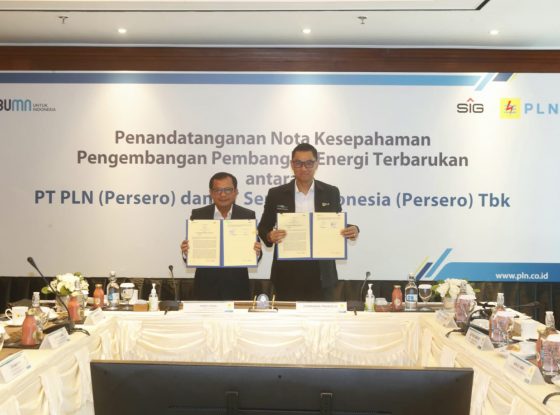Top 10 Countries Leading Blockchain Technology In The World

The worldwide market for Blockchain and Cryptocurrency in today’s times continues to pull interest from online payments sectors and retailers. The studies have shown that most developing and well-established nations are dominating the space of cryptocurrency and blockchain technology, and the digital market is progressively attaining momentum with growing trends worldwide.
Multiple reports indicate that by 2030, the global GDP might see a rise up to 2 trillion dollars just by utilising blockchain technology, making it an essential contributor to the world’s economy.
Presently, countries like Japan and the United States are topping the rankings for accepting and implementing cryptocurrencies. Despite the several infrastructure issues, many of the African countries also reached the top at the list of blockchain leading countries. Even Asian countries are running in this race, and most of them are already enlisted as the top 20 countries for cryptocurrency implementation. Due to the increasing user-base of cryptocurrency and blockchain, online blockchain education courses are also getting traction.
This article discusses the top 10 countries which are leading blockchain technology in the world.
Japan
Japan is among the very first adopters of Blockchain technology. Japan has been a crypto-centre since the beginning. In fact, the Japanese were quick to begin mining and use Bitcoin even when it had negligible worth in reality.
The innovator of Bitcoin is likewise said to be Japanese due to his name “Satoshi Nakamoto”, which resembles a typical Japanese name. Right now, Japan is the solitary nation to have legitimate lawful cryptocurrency guidelines. In April 2017, The Tokyo government passed a law perceiving Bitcoin as a legal currency.
Japan is one of the central Asian countries in terms of utilising blockchain technology and cryptocurrencies, as per a survey by the digital marketing company, Cyberius.
Further, as indicated by the Japanese Financial Services Agency (FSA), over 3.5 million people exchange cryptocurrencies and accept the digital asset as an actual asset.
Both the Japanese government and tech-enthusiasts populace connect with and empower the implementation of blockchain technology, attempting to lead in worldwide innovative developments.
China
Despite the fact that China declared a restriction on crypto mining and cryptocurrency, it still has not deflected from experimenting with blockchain-based service advancement. Formally, the Chinese government is a solid defender of blockchain technology and seemingly is the area’s biggest and most impressive promoter around the world.
The government is multiplying down on usages of distributed networks with the introduction of a progressed blockchain industrial framework, as the nation hopes to consolidate the technology into its financial and growth strategies. The country intends to build up industrial norms, licensed property insurances, and tariff incentives to help the blockchain-based businesses.
China has adopted blockchain from its schooling system to legal areas; the country has attempted some striking moves to advance blockchain-based advances. It effectively supports its own smart contract programs like TRON, NEO, VeChain, and Qtum.
The authority in China is receptive to the belief that blockchain is quite possibly the most deliberately significant early global innovation.
The crackdown issues in China are generally identified with the areas where exercises related to blockchain technology cross-specific governmental rules and guidelines such as fake conduct, token sales, especially to retail buyers, and other crimes, for example, illegal tax laundering and avoidance of capital controls.
Lebanon
To re-establish trust in the disturbed banking area of Lebanon, an administrative instrument is crucial, and the Lebanese CBDC (Central Bank Digital Currency) project is one of the aspects of it. Since the country’s private banks have profound connections with the government, the two of them experience insufficient public trust. The Central Bank of Lebanon Riad Salamed’s governor reveals that at present Lebanese residents keep more than 10 billion dollars in their houses.
In November 2018, the Governor of Lebanon’s central bank, Riad Salameh, remarked that the bank has a functioning community exploring the execution of digital money, which would be used just like Lebanon’s local currency, “Lira.” As per
The country’s chief central banker, the nation, is setting up public digital money for 2021.
Switzerland
The minuscule Swiss town named Zug, with a population of 29,000 only, is known as the home of the Ethereum network, as it has over 450 blockchain-based associations and businesses. Switzerland provides liberal administrative and duty treatment for newly established blockchain businesses.
Zug town has incredible homegrown as well as worldwide business networks, effective administration, and low rates of fraud. Also, Swiss residents have an undeniable degree of information on the blockchain, and their parliament likewise recommended Bitcoin as fresh money. This has expanded the level of exercises identified with cryptocurrency. Blockchain technology in Switzerland will be required to be brought into insurance, financial service, healthcare, logistics, and medical care soon. The blockchain amicable guidelines have likewise drawn in a great number of investors.
Various journals of the country revealed that FB deemed proposals of introducing Libra, its own stablecoin. Afterwards, the media disclosed the enrollment of Libra network as another sidekick for launching stablecoins.
South Africa
In 2018, the SARB (South African Reserve Bank) used Quorum to initiate a Blockchain-based project, “Khoka ” in companionship with seven different business banks. Its interbank framework handled the ordinary everyday volume of instalments with complete secrecy and conclusiveness in real-time.
After the project’s success, the SARB declared the commencement of stage two of the project by utilising tokenised cash in an MVP (minimum viable product) to distribute, apparent and resolve debentures on DLT to convey strategy and administrative reflections.
In Khoka phase 2, members will buy debt instruments with a wToken (wholesale digital settlement token and wCBDC ( wholesale CBDC. The wToken can be considered as a secretly distributed stable coin that is employed to carry out interbank settlement.
United Kingdom
The United Kingdom comes 2nd in the list of countries that possess the most blockchain-based businesses in the market. The country’s regional authorities plan to work on its guidelines against identity fraud and delayed monetary services with the appropriate execution of blockchain technology.
As a project under ” Innovate UK”, the government introduced BaaS (Blockchain-as-a-service) in August of 2016. BaaS is utilised for compensating student loans and welfare checks. Likewise, retired people get guaranteed payments through blockchain-empowered mobile applications from the UK’s Department of Work and pensions.
As per a report, the ICO interests in the UK expanded by 300% as it went from 50 million USD in 2016 to 150 million USD by 2018. Additionally, between 2017 and 2018, more than 500 million euros investments were spent on British-based blockchain startup companies.
The Cryptocurrency team of the United Kingdom means to direct and empower development. It should fill in as a settling factor in a city that is now home to the second-most number of blockchain businesses in the world.
Bahamas
In 2017, the Central Bank of Bahamas established a CBDC named “Sand Dollar” with an intent to renovate and smooth out the financial framework, diminish service conveyance costs, and boost the efficiency of transactions in the country.
In October of 2020, the Sand Dollar turned into the very first Central Bank Digital Currency to effectively go past the pilot phase and accomplish an official take off. The Central Bank later declared that the Sand Dollar might arrive at full interoperability between its different wallets soon.
Singapore
The nation supports a few new blockchain-based businesses. When it comes to blockchain advancement and applications, it has a neck-to-neck rivalry with China and Japan. The country has made guidelines that would support the growth and development of blockchain and is subsequently perhaps the most pursued area with regards to setting up new blockchain-based businesses.
Singapore is an aspiring Smart Nation with its robust methodology that tries to change this previously known fishing town into a hub of the research facility. Because of its foreseen thinking regarding technological developments, it is one of the chief leaders in the space of blockchain. Singapore gets the top score in the category of smart city, having a considerable number in both the blockchain-based new companies and
quantity of ICOs.
The Singapore government is perceived as more business-accommodating and transparent in comparison to other countries, and it also has blockchain-accommodating protocols. The country supports a lot of new blockchain incubation and cooperating openings. The Singaporean government is investigating a few areas for blockchain use cases; at the same time, the Monetary Authority of Singapore has spearheaded decentralised payment and repayments solutions between banks.
The United States
When it comes to embracing blockchain technology, the United States is not staying behind any other country. The country has made every possible endeavour to accept and execute blockchain technology, from
setting up research associations to ATMs exclusively for Bitcoins. The government intends to make it a piece of their standard working system. States like Montana and Texas are viewed as the most amicable locations with regard to blockchain-based new companies.
Nearly 40% of the all blockchain startup industry is found in the US alone. The country plays a significant part in the ecosystem of cryptocurrency and blockchain. According to the most recent report, the United States Federal Government expects to expand investment in blockchain development ten times more than before. Initially, in 2017, the measure of expenditure toward blockchain development was 10.7 million dollars, but now it is expected to experience an increment to 123.5 million dollars before the end of 2021.
Numerous country-based financial organisations are putting resources into blockchain technology to make a more productive organisation to deal with economic exchanges. The Investment banking goliath, JP Morgan Chase, in April 2019, disclosed that 200 unique banks had merged its approved variant, IIN ( interbank information network), in order to support Ethereum Blockchain.
Another financial organisation, Goldman Sachs, has indicated to be launching its own stable coin soon.
Estonia
Estonia is recognised as the earliest nation to set up a blockchain-based e-residency policy. The country has come out to be really a digital society that employs new advancements to profit the economy and its citizens. It is planning to execute blockchain in governance, medical services, banking services. It has various Bitcoin-based ATMs.
Estonia has also been the first nation to establish e-voting, a ballot service that runs with blockchain technology. This voting system likewise empowered individuals to turn into the investor of Nasdaq’s Tallinn Stock Exchange.
A more significant part of the government services is offered day in and day out on the web, and the information reconciliation is guaranteed by blockchain technology. It has the most elevated infiltration pace of the Internet on the planet. Estonia has also begun providing e-citizenship for those who want to live in Estonia. It has drawn in a ton of new blockchain-based companies. Estonia itself has been pronounced as a notable location in terms of accepting blockchain technology.
The constant craving of the people of Estonia has driven the government to improve and enhance their workings continually. We can say that this nation is running itself like a tech organisation. Without a doubt, it is an ideal model that clarifies how non-industrial nations could remarkably profit by using blockchain technology.
Closing Thoughts
The blockchain market is exceptionally unique, as are the advancements around it. Numerous nations are presently preferring the utilisation of blockchain technology. Along these lines, clearly, the rundown doesn’t end here. There are many more different nations that are all set up to embrace blockchain quickly. Blockchain is estimated to grow and extend in the forthcoming years.
The blockchain buffs accept that this development will be entirely not quite the same as the Internet expansion. Certain nations are embracing their enactment of the new technology, while others stay pessimistic towards blockchain and cryptocurrency. Nonetheless, both populace are only empowering blockchain development as they can not deny its immense potential.
Source : blockchain-council.org



